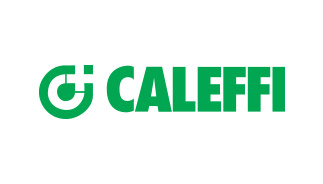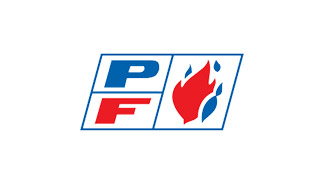Published on
January 22nd, 2024Is a Leaking Water Heater Dangerous?
From showers to cooking and cleaning, hot water is essential for many aspects of daily life, which means a water heater is, too. The devices are not overly complex, but that doesn’t mean they are rudimentary or something for a novice to practice DIY projects on. Water heaters contain several technical components and interact with either electricity or gas, so when something goes wrong, it can go very wrong quickly.
Is a leaking water heater dangerous? It can be, so you should always leave repairs to the professionals. Discover the dangers of leaking water heaters, the causes and warning signs, and the steps you should take if you find evidence of damage.
How Is a Leaking Water Heater Dangerous?
Property Damage
When discussing leaks, the primary concern for most building owners is property damage. Damage can be substantial depending on where the leak occurs, how bad it is, and how long it has gone without notice. Water damage may affect the flooring, walls, structural beams, and electrical or gas components of the heater and other nearby devices.
Water can also expose your property to other issues, like mold and mildew. According to the Environmental Protection Agency, property owners only have a 24- to 48-hour window to dry and clean affected areas after a leak, or they risk mold growth. Mold can cause respiratory problems and other health issues.
Explosion
Despite the dangers of water damage, a water leak is your least concern. When is a leaking water heater dangerous and potentially lethal? When it affects gas lines and pressure management mechanisms.
Leaks can occur at several positions on the hot water tank or its connecting pipes. Depending on the severity and duration of the leak, it can affect elements of the heater, including the temperature and pressure valve or incoming gas lines. Either issue can lead to pressure buildup in the tank or the water heater room. Too much pressure in the tank can lead to an explosion. A gas leak in the boiler or water heater room can also lead to an explosion. Both events can be life-threatening.
Injury, Fire, or Electrocution
Maybe your building doesn’t have a gas water heater. An electric leaking water heater is dangerous, as well. While you may not face the same threat as an explosion, you are still at risk of electrical fire or electrocution.
A leaking electric water heater can cause appliance circuitry to short. It can also create electrical arcing as electricity jumps from one connection to the next to resolve an interrupted circuit. The temperature of an arc flash can reach 35,000°F depending on the electrical current, voltage drop, and metal components involved. The temperature can instantly ignite fabrics and various other materials. Also, if you come anywhere near the system or the arc, you risk electrocution.
What Causes a Leaking Water Heater?
Poor Installations
Many people believe they can install a water heater because they observe minimal connection points, all on the outside of the appliance. Despite the straightforward look of the installation, a lot can go wrong, resulting in a dangerous leaking water heater.
When someone rushes through an installation or lacks experience, several common errors can occur, resulting in leaks. The most problematic errors include:
- – Loose fittings
- – Incorrect installation of water lines
- – Improper installation of the pressure relief valve
- – A loose drain valve
- – High-pressure or temperature settings
Faulty Temperature & Pressure Relief Valve
The T&P relief valve is a safety device designed to mitigate or regulate temperature and pressure issues in the water heater. When working correctly, the valve releases water when the tank’s temperature or pressure becomes too high. However, when the valve is faulty, the pressure relief sensor does not work, sending pressure and temperature soaring in the system — the additional pressure and heat cause excess expansion and contraction, which results in leaks.
Age and Corrosion
Sometimes, a dangerous leaking water heater does not result from faulty equipment or installation mistakes. Sometimes, the cause of the leak is age and corrosion. The typical lifespan of a water heater is eight to 12 years. If you are lucky, you can get up to 20 years out of the appliance with regular maintenance and inspections. Still, even the most well-kept water heater will need repairs for worn connections and aged pipes.
What Are the Signs of a Leaking Water Heater?
Hot Water Shortage or Temperature Fluctuations
It is not always apparent that something is wrong with your building’s water heater. Some leaks are so subtle they may not leave evidence like pooling. Also, the leak may not occur on or around the tank; it may be in the wall or hidden.
If pooling or dripping isn’t noticeable, one of the first signs of a dangerous leaking water heater is hot water shortages or temperature fluctuations. The temperature inconsistency occurs because the tank always adds fresh water to the supply to refill the lost water, meaning your hot water supply will not last as long.
What Should You Do When You Notice a Leaking Water Heater?
Shut Down the Power and Water Supplies
Whether a leaking water heater is dangerous doesn’t matter; it is a problem regardless. To avoid potential problems for your building and tenants, shut off the power and water supply to the appliance — only if it is safe to do so.
Do not enter a flooded room to shut down the system. Electricity and water are a dangerous combination. If there is flooding in the water heater area, call a licensed plumber or Calray Boiler professional for assistance. A professional can assess the situation and determine if emergency services are necessary.
If you have a gas-based system and smell or suspect a gas leak, call your local utility provider. They can shut down the supply and assess and clear the area.
Why Is a Leaking Water Heater Dangerous, and Who Can Help?
Call Calray Boilers for Maintenance, Repairs, and Inspections
So, is a leaking water heater dangerous? Yes, in some situations. The potential safety concerns depend on the system and severity of the leak. Calray Boilers can help you assess the safety issues of a leak and make all necessary repairs. Call the service at 212-722-5506 to schedule an inspection and ask about annual service contracts.










